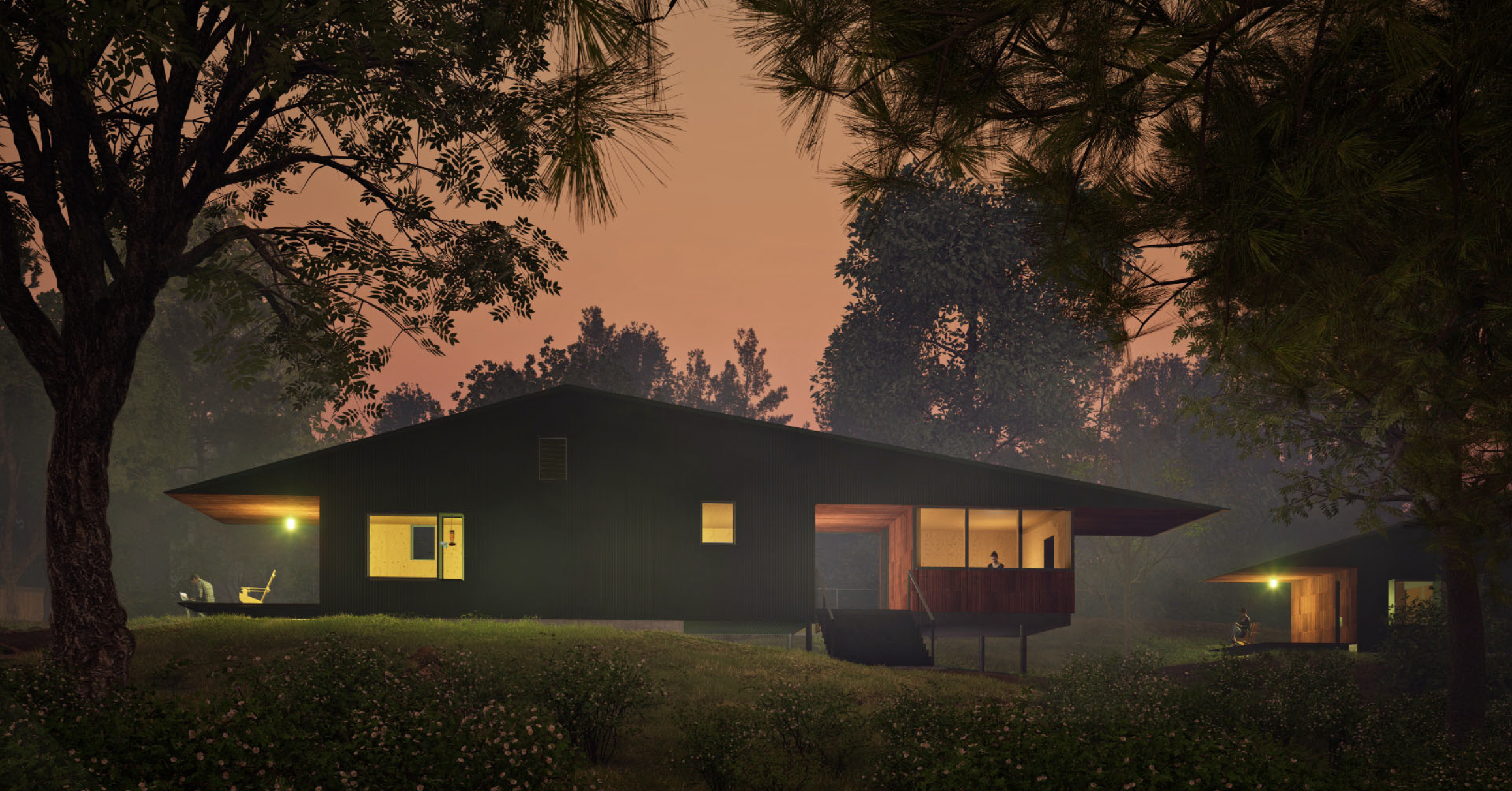
Facilities
Shot-trot studio rendering by Marlon Blackwell Architects
Greenfield Farm will host 50-60 writers each year. We begin with four new studios: one area for living and the other for focused work. Constructed in a modern style, based on designs by Marlon Blackwell Architects of Fayetteville, Arkansas, these contemporary studios will serve as architectural and cultural linkages between the past and future. A fifth building will serve as a communal gathering and dining space. The residency manager, who will steward the property, will live in an apartment there.
The old farm house, now in ruins, will be contextualized by narrative exhibits. The house once stood at the center of a larger farm, owned the Parks family, the likely model for the Snopes family in Faulkner’s fiction.
Two day-commute studios, set in restored structures, will serve writers who live and work within daily driving distance. One studio will be set in the old farm shed and corncrib. A second studio will be set in Revered Will D. Campbell’s old writing cabin.
Reverend Will D. Campbell, born in 1925 in Amite County, Mississippi, served in World War II and earned a degree from the Yale Divinity School on the GI Bill. Months after the Supreme Court declared school segregation unconstitutional, he took a job as chaplain at the University of Mississippi. After Campbell invited speakers who supported the NAACP and broke other unwritten campus rules that angered the administration, Campbell moved his family to Tennessee and took a job as a troubleshooter with the National Council of Churches.
Campbell was the only white person invited by Martin Luther King Jr. to the founding of the Southern Christian Leadership Conference. He helped escort Black students through white crowds in an early attempt to integrate Central High School in Little Rock. Later, at his cabin outside Nashville, he built friendships with country artists Tom T. Hall, Waylon Jennings, and others, and wrote books, including Brother to a Dragonfly, a 1978 finalist for the National Book Award.
In 2004, the University of Mississippi named Campbell Honorary Chaplain for Life. “I have never forgotten that you are my people,” he said from the stage, “and I have never been more honored.” Campbell died in 2013. The Campbell family plans to donate his cabin to UM so that we can move his writing space from Tennessee to Greenfield Farm, where the restored log structure will serve local and visiting writers.
